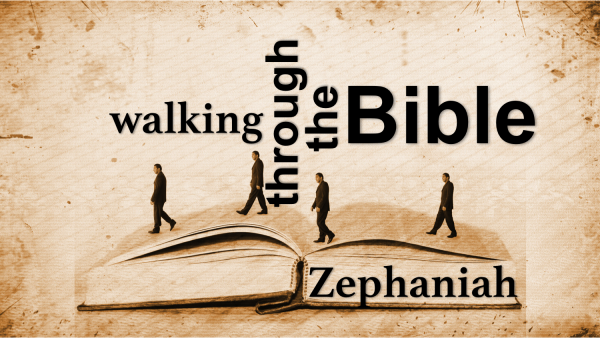Twice in the book bearing his name, Zephaniah refers to God’s jealousy, one to Judah alone and once regarding all the rebellious earth. First, in Zephaniah 1:18 he wrote: “Neither their silver nor their gold shall be able to deliver them in the day of the Lord’s wrath; but the whole land shall be devoured by the fire of his jealousy: for he shall make even a speedy riddance of all them that dwell in the land.” Then in Zephaniah 3:8 regarding all the world he penned: “Therefore wait ye upon me, saith the Lord, until the day that I rise up to the prey: for my determination is to gather the nations, that I may assemble the kingdoms, to pour upon them mine indignation, even all my fierce anger: for all the earth shall be devoured with the fire of my jealousy.” This jealousy, though, is not the one built upon misery and hatred but rather love. God “so loves his people that He cannot bear a rival, and must have their wholehearted devotion; and He will do everything to secure this, even going to the length of awful judgment, as here” (Robert Lee).
The book of Zephaniah, itself, it typically divided into its three natural sections. First, the prophet warns of God’s judgment upon Israel (1:1-2:3; 3:1-7). His promise is epitomized in Zephaniah 1:2-3 as: “I will utterly consume all things from off the land, saith the Lord. I will consume man and beast; I will consume the fowls of the heaven, and the fishes of the sea, and the stumblingblocks with the wicked: and I will cut off man from off thel and, saith the Lord.” The judgment of God, then, would be in the whole land and extend to all classes of people. From the royalty, nobility, and tradesmen to the indifferent and obstinate, all would feel His wrath.
Second, in Zephaniah 2:4-15 and 3:8, the prophet gives reference to the judgment of God on the surrounding nations. Not only would Judah feel the anger of His jealousy but also named are her enemies Canaan, Philistia, Moab, Ammon, Ethiopia, and Assyria. Unto all these heathen it is promised: “The Lord will be terrible unto them: for he will famish all the gods of the earth; and men shall worship him, everyone from his place, even all the isles of the heathen” (Zephaniah 2:11).
Then, finally is Zephaniah’s pronouncement of a remnant’s salvation (Zephaniah 3:9-20). One day His jealousy would be quenched and: “In that day shalt thou not be ashamed for all thy doings, wherein thou hast transgressed against me: for then I will take away out of the midst of thee them that rejoice in thy pride, and thou shalt no more be haughty because of my holy mountain” (Zephaniah 3:11).
Christ’s presence in Zephaniah’s book is seen from two standpoints. First, the day of the Lord, mentioned on multiple occasions in Zephaniah, is typical of the great day of the Lord for which the world still waits in which Christ shall again appear and the earth and all works are melted with fervent heat (II Peter 3:10). Second, the great redemption of the remnant of Judah is typical of the great redemption available in Christ.
Zephaniah’s book of prophecy is one filled with purpose and principle to all the world today. The general theme, comparable to other of the prophets, of sins’ consequences is one needed throughout all the earth. When it is learned and heeded then shall the Lord God be in the midst of the world mightily and save (Zephaniah 3:17).

